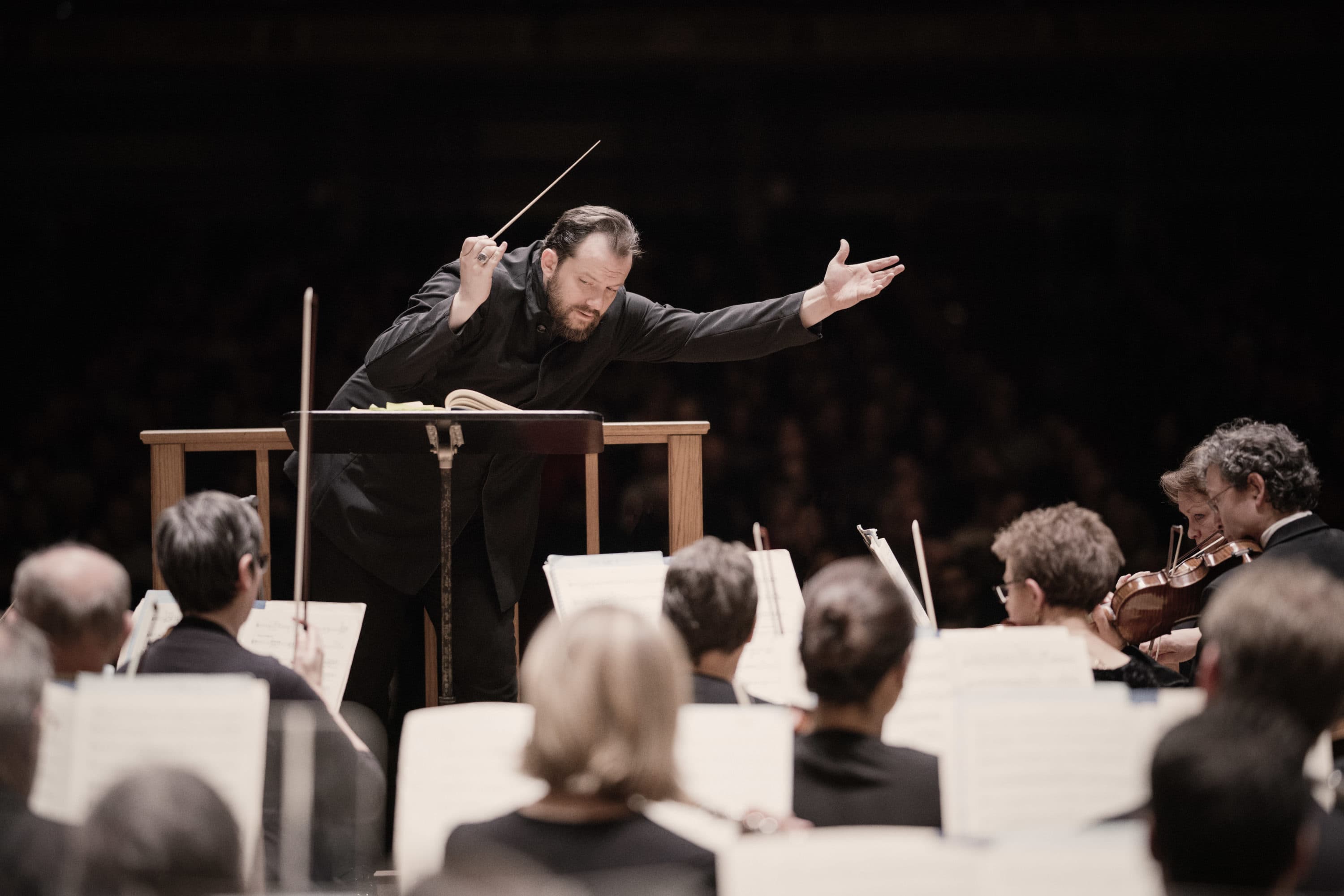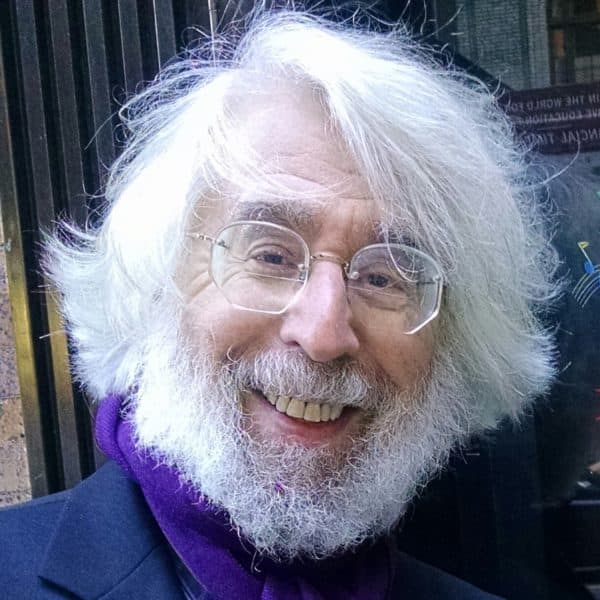Advertisement
Spring Classical Music Guide
10 classical concerts to enjoy this spring

Spring seems to be here, more or less, and this season offers a wealth of intriguing concerts by Boston’s extraordinary classical performers. Here, in chronological order, are ten concerts and productions that I’m especially excited about.
Collage New Music
Longy’s Pickman Hall | April 10
Coming up very soon, our premiere contemporary music group, under the sophisticated and thoughtful baton of distinguished music director David Hoose, has some treats in store for us: two world premieres, a Boston premiere, and two other recent works. No doubt accurately called “The Unpredictable,” the program kicks off with the first Boston performance of Yo-Hui Chang’s “Intersect” (the title already setting us up for the rest of the reading). This is followed by David Froom’s “Hidden Motives” and Katherine Salfelder’s “Kaleidoscope.” And then world premieres commissioned by Collage, MIT professor Peter Child’s “Turning Point” and a new piece intriguingly called “Sequel” by composer Yehudi Wyner, who has lately been on a roll with some of his most beautiful and gripping music.
Winsor Music
First Church Boston | April 14
Boston’s wonderful chamber group Winsor Music has an outstanding spring season. In its most appealing concert, Winsor welcomes the great violist Kim Kashkashian in an evening devoted to the late György Kurtág, including his “Hommage à R. Sch.” and works by both Schumanns, Clara (3 Romances for oboe and piano, featuring Winsor founding director, the sublime Peggy Pearson) and Robert (his gorgeous and moving Piano Quartet, with Kashkashian joining pianist Donald Berman, violinist and Winsor co-director Gabriela Díaz, and cellist Rafael Popper-Keizer).
Boston Symphony Orchestra
Symphony Hall | April 21
For one night only, on a weekend in which Andris Nelsons will be continuing his current exploration of the music of Richard Strauss (dare I question whether a composer as popular as Strauss really needs further “exploration”?), Boston’s major classical ensemble will be joined by the soprano who is currently getting more attention—for the size and beauty of her voice—than just about any other singer on the international stage, the young Norwegian soprano Lise Davidsen, who has been especially making waves at the Metropolitan Opera. Nelsons will be leading her in a single performance of Strauss’ last—and one of his most personal, most ravishing, and most moving—pieces, “Four Last Songs.” The rest of the program, which will be repeated at the remaining BSO performances that weekend, will include Strauss’ exuberant, hilarious, sinister and colorful “Till Eulenspiegel’s Merry Pranks,” and his longer, less familiar though charming musical depiction of his own household, “Symphonia domestica.”
For the rest of the weekend and the following Tuesday, instead of the vocal work, Nelsons will conduct Strauss’s symphonic poem based on themes from his mystical opera “Die Frau ohne Schatten” (“The Woman without a Shadow”). The shorter “Casual Friday” evening concert will not include “Till Eulenspiegel.”
Boston Baroque
Calderwood Studio, WGBH | April 21, 22, 24
I’m eager to hear again a rare performance of “Amadigi di Gaula,” an early Handel opera that was a big success for the composer in 1715. I’ve heard it only once before, in 2009, by the very group that is performing it this time, Martin Pearlman’s Boston Baroque. This will have a new cast—the justly celebrated American countertenor Anthony Roth Costanzo (who more than deserved his rave reviews for playing the title role in Philip Glass’s “Akhnaten” at the Met) will be singing the challenging title role here, with Boston’s Baroque darling, soprano Amanda Forsythe, as the evil sorceress, and new staging, a good thing, since I had some serious reservations about the earlier one. Brilliantly orchestrated and offering the singers rich opportunities to shine, “Amadigi” isn’t consistently Handel at his best, but more than occasionally rises to that level (anticipating, for example, Handel’s famous “Water Music”).
Glissando
First Church Boston | April 23
Glissando’s brilliant pianist-director, Sergey Schepkin, yields center stage to the young American piano virtuoso Evren Ozel, a student of the great Wha Kyung Byun, for an evening of Debussy Preludes and Schumann’s “Kreisleriana,” two of the most poetic works ever written for solo piano. Schepkin, whom I trust about such matters, calls Ozel “a true poet of the piano,” and that’s the kind of pianist I want to hear play these musical poems. A couple of days later, and for the following week, we can watch this concert virtually.
Sébastien Daucé and Ensemble Correspondances
St. Paul Church, Cambridge | April 29
The Boston Early Music Festival has invited this distinguished French group of instrumentalists and singers back for an evening of other-worldly yet less-often played German Baroque masters: Buxtehude and Schütz. The highlight is sure to be Buxtehude’s “Membra Jesu nostri,” his seven-part cycle of cantatas dealing with the Passion of Christ. There will also be the beautiful sacred motets by both featured composers. Virtual performances will also be available beginning May 13.
Boston Philharmonic Youth Orchestra
Symphony Hall | May 6
Benjamin Zander, director of the Boston Philharmonic and the Boston Philharmonic Youth Orchestra, has announced that “the Boston Philharmonic stands in solidarity with Ukraine. All ticket sales from this concert will be donated to the Ukraine Tensions: No Child Forgotten program to assist some of Ukraine's most vulnerable children suffering from Russia's unprovoked invasion of Ukraine.” This meaningful program of Russian music begins both ironically and with a wish for the future, Shostakovich’s “Festive Overture,” followed by Georgian pianist Alexander Korsantia playing Prokofiev’s fiendishly difficult and exhilarating Third Piano Concerto and ends with Tchaikovsky’s tragic “Pathétique” Symphony.
Dashon Burton
Longy’s Pickman Hall | May 25
The powerful and expressive bass-baritone Dashon Burton is my top choice among the Celebrity Series of Boston’s spring programs. One of the original founders of the vocal group Roomful of Teeth, Burton has made a brilliant career on his own. His choice of material for this concert, accompanied by pianist Lindsay Garritson, indicates both his taste and ambition. He begins his program, called “Immortal Dreams,” with “Ich habe genug” (“I have enough”), Bach’s solo cantata for bass (Burton will have to live up to the devastating performance in Boston by the late Lorraine Hunt Lieberson), then plunges into the dark world of Brahms’s “Four Serious Songs,” then the exquisite, rarely heard late Fauré song cycle “Mirages,” and ends with Margaret Bonds’ setting of Langston Hughes poems, “Three Dream Portraits.” I can’t imagine a more thoughtful and serious program or anyone else I’d rather hear do it.
Brett Dean’s 'Hamlet'
The Metropolitan Opera Live in HD | June 4
I’ve been concentrating on in-person musical events and works or performers with whom I have some familiarity. But I’m so curious about this one that I couldn’t resist. Australian composer Brett Dean’s new version of “Hamlet” has gotten some good reviews, and it comes to the Met this season. It will be telecast live in movie theaters, in a production staged by its original director, and with a cast of some excellent and familiar singers repeating their original roles. The stage director is Neil Armfield, and although I’m not familiar with the tenor, Allan Clayton, I admire soprano Brenda Rae (Ophelia), mezzo-soprano Sarah Connolly (Gertrude), baritone Rod Gilfry (Claudius) and bass-baritone John Relyea (the ghost).
'X: The Life and Times of Malcolm X'
Strand Theatre | June 17
If I had to pick one live opera to attend, it would be Gil Rose’s Boston Modern Orchestra Project’s production of this powerful if uneven work (though now revised) that had its Boston premiere in 1988, Anthony Davis’s “X: The Life and Times of Malcolm X.” There isn’t a lot of information just yet, but the title role will be played by the young bass-baritone Davóne Tines, who impressed me in the A.R.T. production of Matthew Aucoin’s Walt Whitman opera (which I wish had impressed me more), and is this year’s Musical America Vocalist of the Year. This production is the first of an ambitious BMOP project called “As Told By: History, Race, and Justice on the Opera Stage,” a series of five operas by Black composers “that depict vital figures of Black liberation and thought across 250 years of history.”





